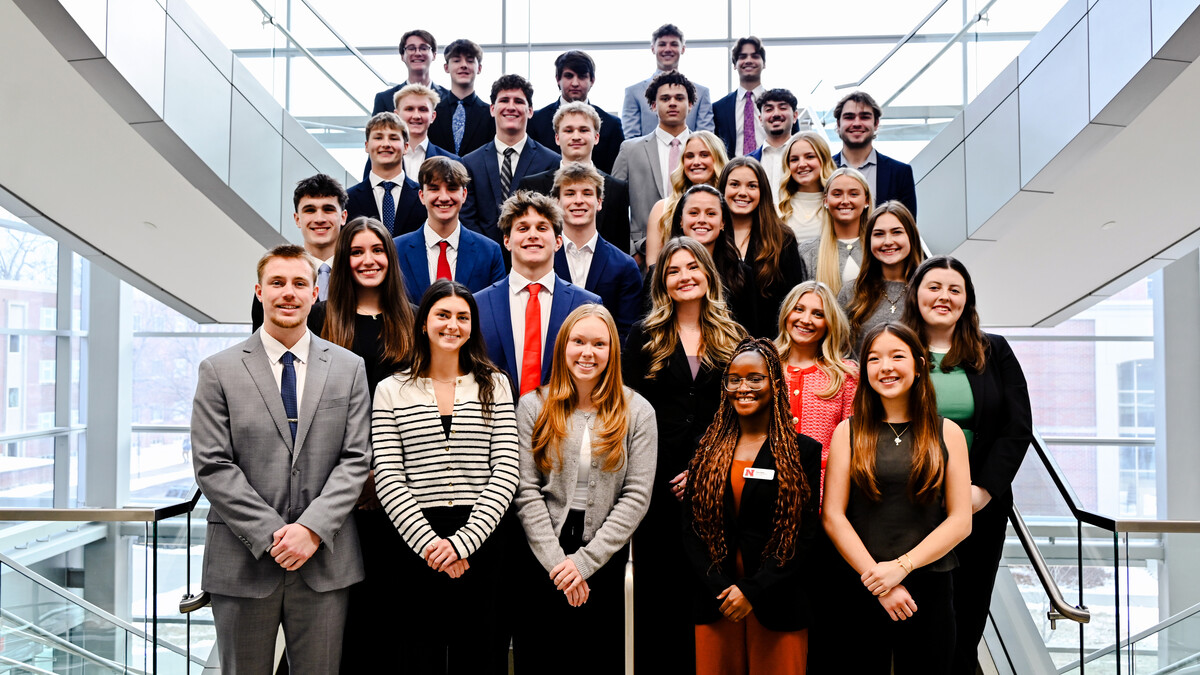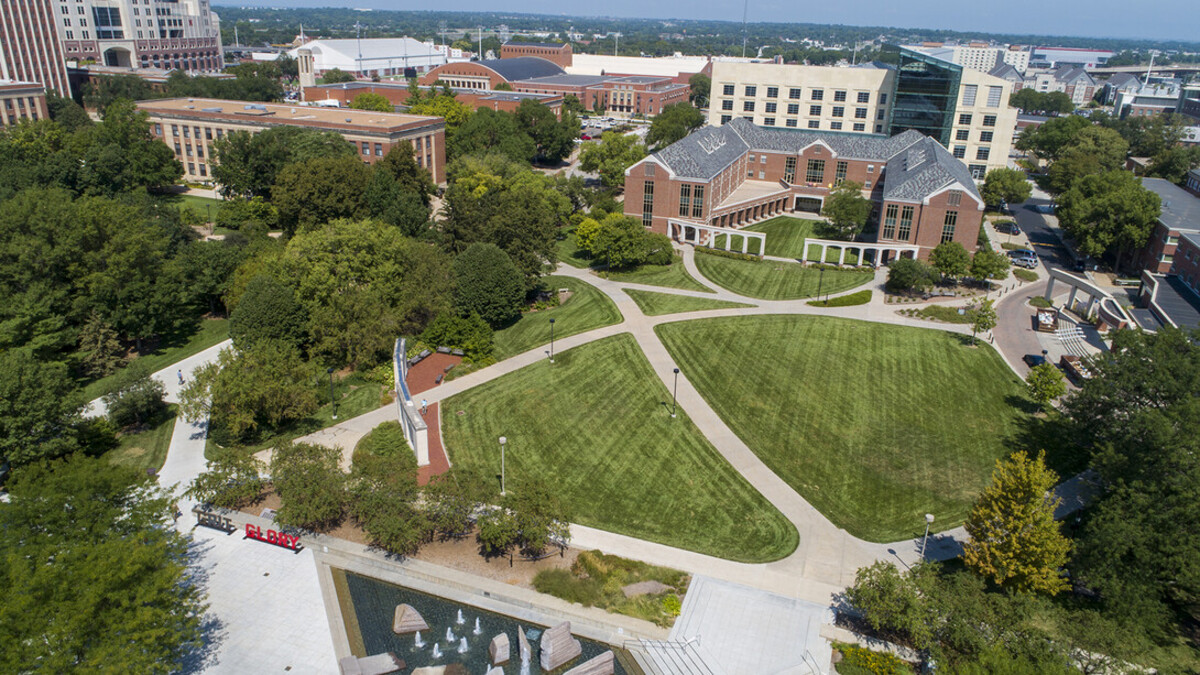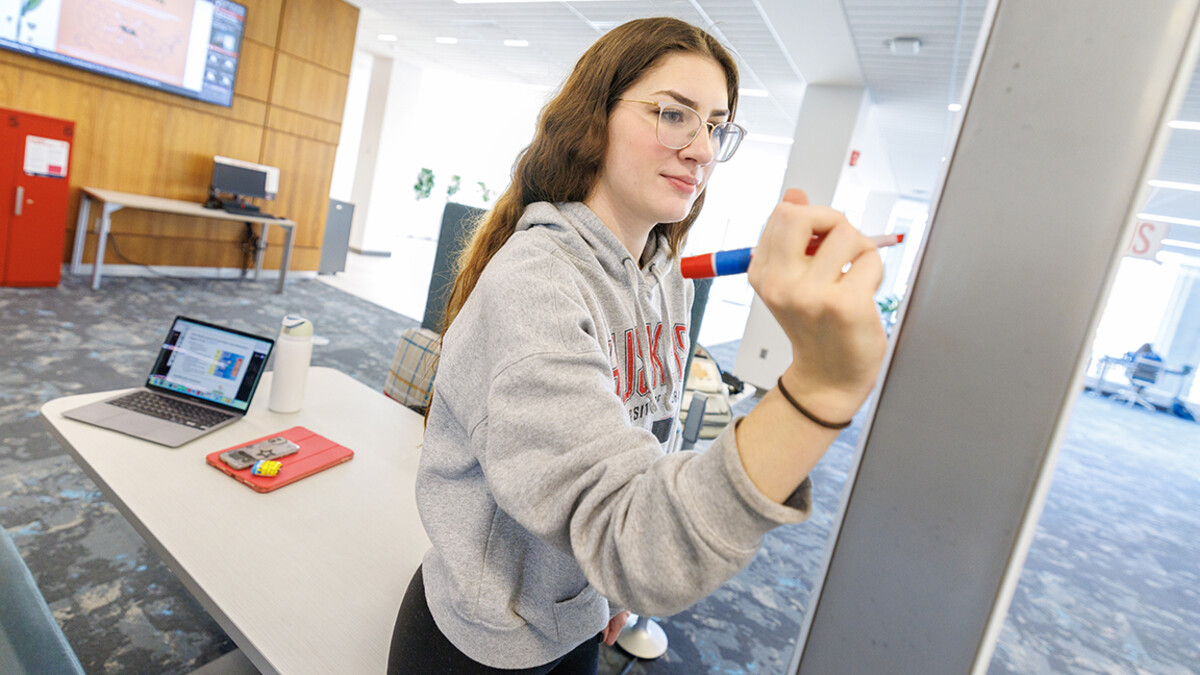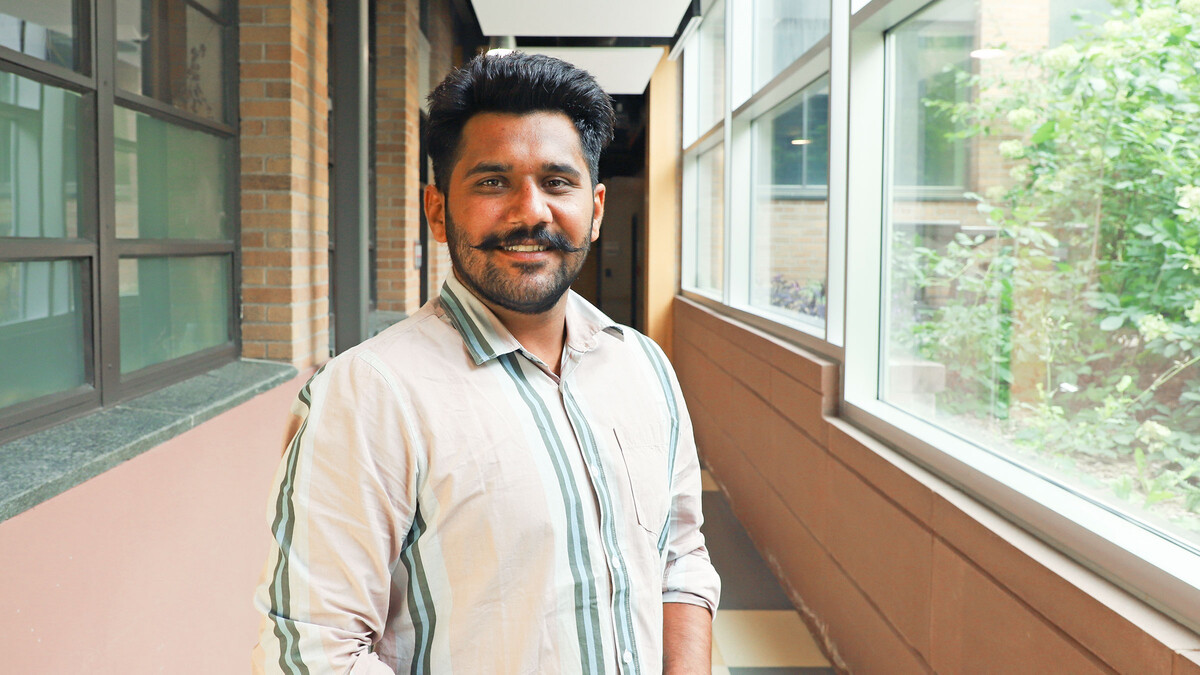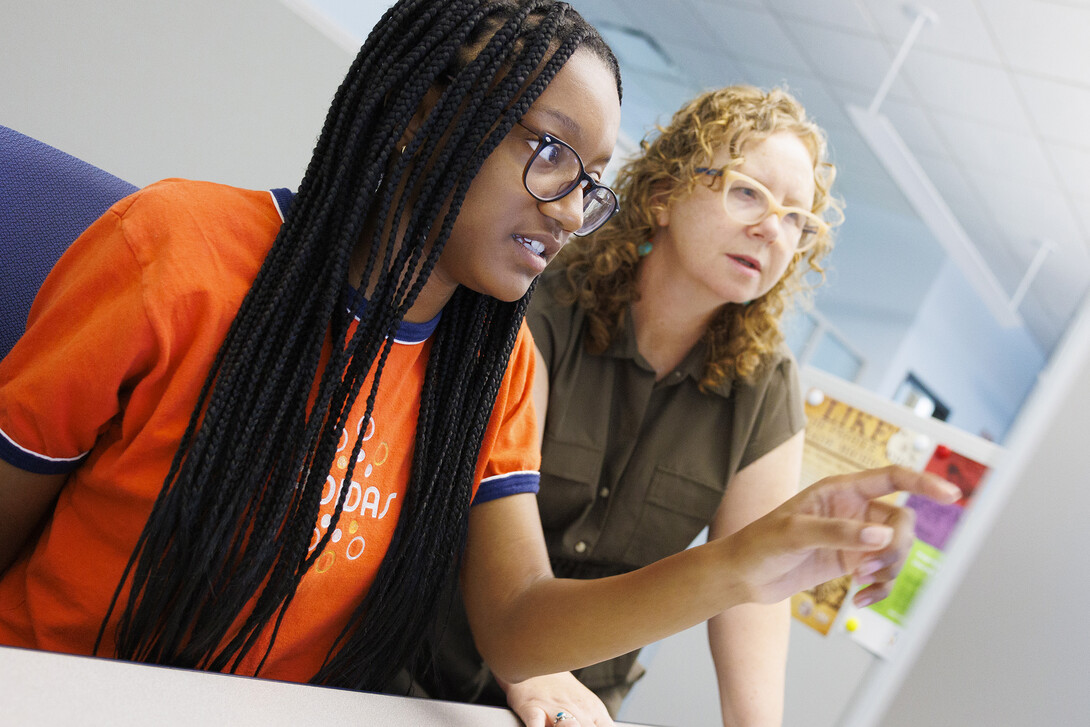
The handwriting on the screen can be vexing, but the stories are fascinating.
Zoe Williams, a rising sophomore at Howard University in Washington, D.C., carefully read the scrawled words of a 200-year-old document on her computer screen in the Digital Legal Research Lab, a lab in the University of Nebraska–Lincoln’s Center for Digital Research in the Humanities.
“That is easily the biggest challenge,” Williams said. “You do get used to the handwriting as you go, and some pages are easier than others, but there have been some that look like chicken scratch.”
As the reading started to flow more easily, Williams began to untwine and understand the legal hurdles of an enslaved man named Paul Jones who was seeking his freedom through the courts.
“It’s been inspiring to learn about the different kinds of resistance that enslaved people used, because that isn’t the narrative that I’ve learned about,” she said. “My favorite part of this experience has been learning so much new history of enslaved people in the courts.”
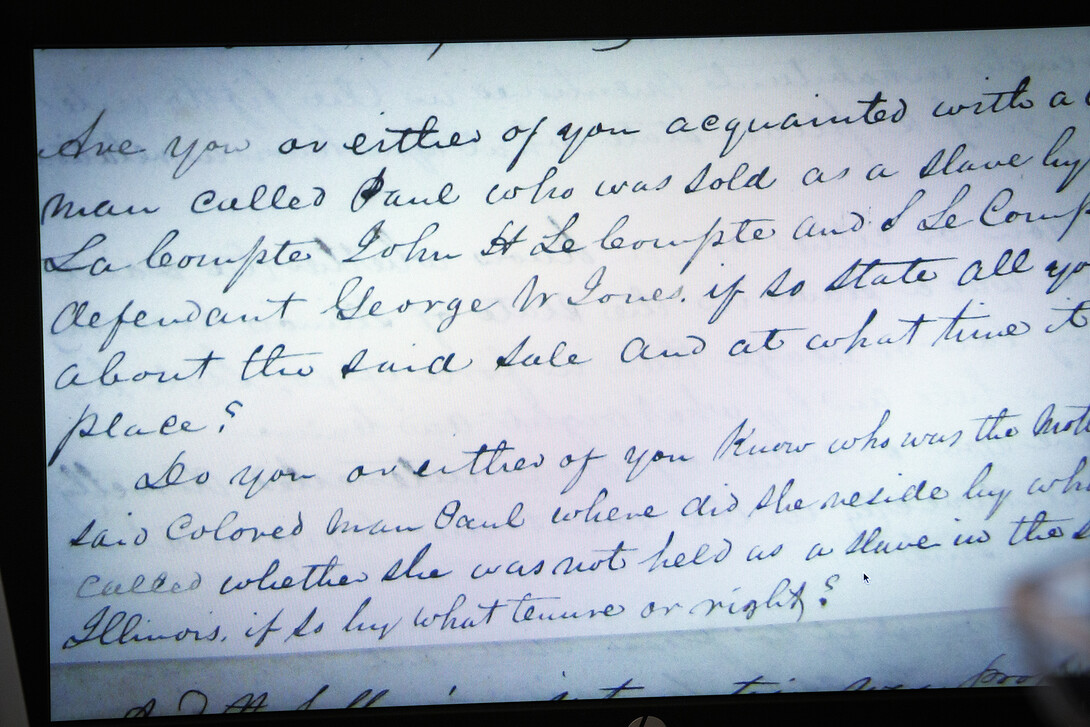
Williams, who counts Aurora, Illinois, as her hometown, found the Digital Legal Research Lab’s Research Experience for Undergraduates site through a listing from the National Science Foundation, which funded the lab for three years beginning in 2022. The opportunity immediately piqued Williams’ interest. Currently majoring in political science, she aims to get her doctorate in a social science field and plans to pursue research internships throughout her undergraduate years.
“This was my top choice for a summer program,” Williams said. “It’s unique research, it’s interdisciplinary, and it caught my eye because I’d never really heard of someone researching the legal history of enslaved and Indigenous people.”
Williams is one of 11 undergraduate students who are spending their summer term as research scholars in the lab, which is led by Katrina Jagodinsky, associate professor of history. During the 10 week program, the students comb through freedom suits and habeas corpus petitions scanned from archives, adding transcription and annotation.
The student scholars will present early findings from the cases they’re researching during a Juneteenth program, 1-3 p.m. June 19 in Love Library South’s auditorium, Room 102. Also presenting are three graduate students who are working in the lab, supported through a Mellon Foundation grant. A Q&A will follow. It is free and open to the public.
Eight of the undergraduates are enrolled as scholars through the NSF Research Experience for Undergraduates site, and three are completing research through the UNL’s UCARE program. Jagodinsky said having students both from Nebraska and across the United States working together is helpful in myriad ways, but especially for enriching the experience of the visiting scholars, who live on campus during the Research Experience for Undergraduates term.
“Our Nebraska students play an important role as ambassadors, since they know campus and the community,” Jagodinsky said.

Veronica Sargbah, a rising sophomore at Nebraska is majoring in landscape architecture. She realized history and architecture can intersect during a high school internship. After completing research in the lab during her first year on campus, she is considering adding a history minor.
“My mentor during the internship was doing historical preservation of buildings, and those kinds of projects,” Sargbah said. “She has a love of history and architecture, and I didn’t really even know it was an option to combine those. I have always loved history, too.”
Sargbah initially joined the Digital Legal Research Lab as a freshman because it was an on-campus job that would be different from her architecture course work.
“I saw an email for a freshman year research experience program, and it worked with my course load,” she said. “It gave me the chance to do some history and humanities research. It’s almost felt like an escape from homework. It doesn’t feel like a job because I am deeply interested in it.
“Being here during the summer months is keeping me engaged — I’m working but doing something educational and I feel like when the new school year starts, I’ll be more ready.”
Since joining the lab last fall, Sargbah has been working on the case of Lydia Titus, an enslaved woman seeking freedom and custody of her children.
“There was a kidnapping, and there are documents arguing that she wasn’t properly freed, and so her children and grandchildren were enslaved,” Sargbah said. “When I started on this one case, we didn’t realize how many cases were interconnected, but now I’m working on several. One of the respondents is Alexander P. Field, who was a lawyer in the Dred Scott case and friends with Abraham Lincoln, so I’ve gotten to really see how so many of these cases are connected in history.”
To help simplify her presentation, though, Sargbah will cover a different case during the Juneteenth event — Spreers v. Chouteau. It took place in Missouri in 1841, and concerns the estate of a free woman of color, Esther. The case includes accusations of fraud, forgery and other deception and is a battle to keep real estate in Esther’s family.

